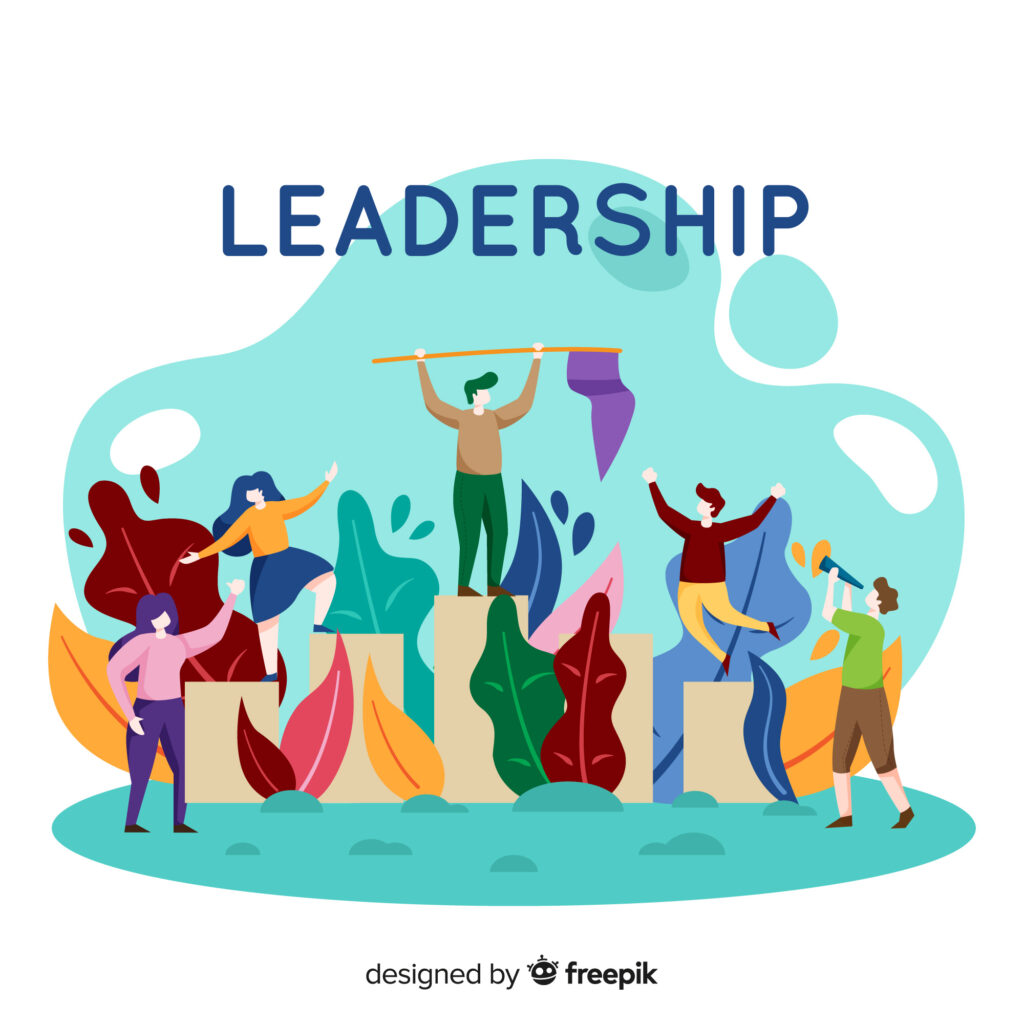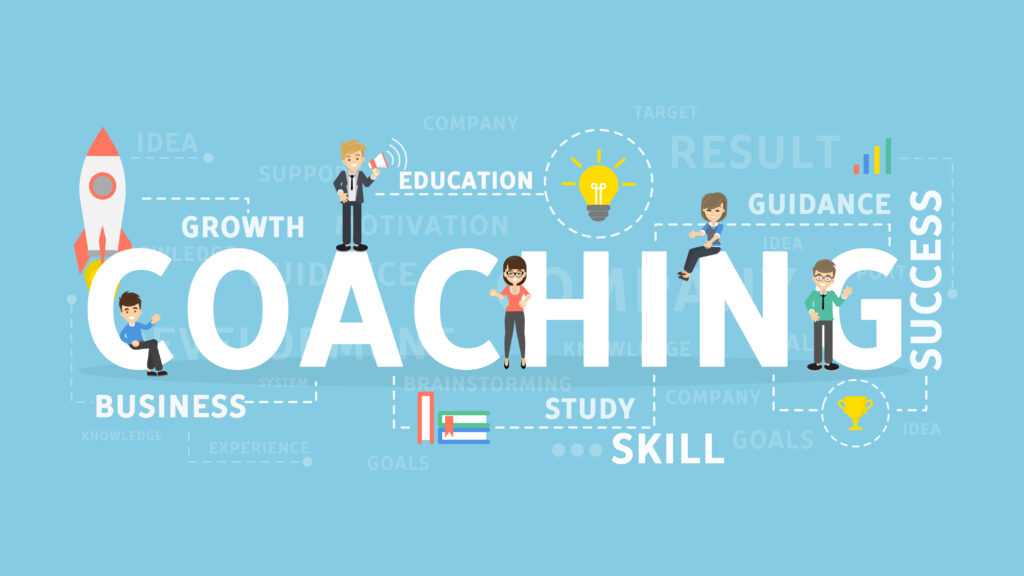We all seek ways to thrive both personally and professionally. And that's where coaching steps into the spotlight - a dynamic tool for growth, change, and achievement. However, coaching isn't a one-size-fits-all solution. There are definitely more and more different types of coaching emerging, each designed for different needs and goals.
To help you navigate the coaching market better, we’ve prepared the only guide you’ll ever need about different types of coaching. We'll also help choose your coaching type based on your skills and current demand.
So, whether you're a seasoned coach, someone considering a coaching journey, or simply curious about the transformational power of coaching, this is the only guide you'll ever need to navigate the intricate maze of coaching types.
Let’s get started!
10 Main Types of Coaching: Overview
Let's see the broader picture of different types of coaching before we commit to exploring each of them and their subtypes. Here is the list of widely popular coaching types:
- Business Coaching
- Career Coaching
- Performance Coaching
- Executive Coaching
- Life Coaching
- Financial Coaching
- Sports Coaching
- Health Coaching
- Educational Coaching
- Parenting Coaching
Types of Coaching in the Workplace
Compared to others, types of coaching in the workplace may be more lucrative, as your job is to improve one or more aspects of business processes. Your target audience is business owners, entrepreneurs, companies, small businesses, or even corporations. In workplace coaching, there isn’t a one-size-fits-all approach. You have to integrate into the business, team, and department or understand better the struggles one particular person has regarding the business. It all depends on which type of coaching in the workplace you want to specialize in.
Let’s start with the most obvious type of coaching in the workplace - business coaching.
Business coaching
Business coaching is a valuable resource for entrepreneurs, business owners, and leaders. Coaches in this field provide guidance on business strategy, team management, problem-solving, and growth planning. They help businesses thrive and adapt to changing markets.
What are the skills and experiences of business coaches?
Business coaches should have a deep understanding of business principles, including strategy, finance, marketing, operations, and leadership. You need to be well-versed in the dynamics of different industries. Many business coaches have extensive leadership experience in their own careers. This background allows them to relate to the challenges faced by clients, whether it's leading a team, managing projects, or making critical business decisions.
There are different types of business coaching, and some of the most popular are:
Executive coaching
Imagine a Fortune 500 company with a new CEO who has taken the helm of the organization. The CEO is highly experienced but faces several challenges, including leading a diverse and geographically dispersed team, navigating a rapidly changing industry market, and ensuring the company's long-term sustainability.
In this scenario, the company's board of directors decides to engage an executive coach to support the new CEO in successfully transitioning into the leadership role. The executive coach, often a seasoned professional with a background in executive leadership and coaching, begins working with the CEO.
As an executive coach, your job would be to assess the situation, set KPIs, provide feedback and assessment, create a customized coaching plan, monitor progress, provide support, and achieve measurable results.
Entrepreneurial coaching
Entrepreneurial coaching is a type of business coaching specifically focusing on entrepreneurs and business owners. As an entrepreneur coach, you can target either people who want to become entrepreneurs or those who struggle with some aspects of their business. Let us show you an example of entrepreneurial coaching and its opportunities.
Consider an aspiring entrepreneur named Sarah who has a vision to start her own beauty business. She's passionate about all things beauty and wants to launch a beauty salon. However, Sarah is new to entrepreneurship and faces various challenges, including defining her beauty salon business plan, setting up salon booking software, and creating an effective salon marketing strategy.
Sarah decides to seek entrepreneurial coaching to help her turn her dream into a reality. She hires an entrepreneurial coach with experience in the beauty industry and small business development. As an entrepreneurial coach, you can help Sarah clarify her business vision, come up with a business and marketing plan, do market research, and set up other important business operations with her.
Sales coaching
Sales coaching is a specialized type of business coaching specifically designed to enhance the performance of sales professionals. After working with a sales coach, salespeople will asses and refine their skills, overcome challenges and effectively achieve their sales targets. Besides individual sales professionals, sales coaching is great for sales departments of virtually any business, making it a great opportunity to build your career in this field.
Team coaching
Team coaching involves working with a group of individuals who collaborate on a shared goal, such as a project team, department, or executive leadership team. The aim is to enhance team effectiveness, communication, and overall performance.
Imagine a large marketing team at a tech company. The team is experiencing issues with communication and collaboration. Despite having talented individuals, their projects are often delayed, and there's a lack of alignment on strategic goals. The company hires a team coach to address these challenges.

Image by standret on Freepik
The team coach facilitates regular team meetings, conducts assessments, and uses various coaching techniques to improve communication, clarify roles and responsibilities, set clear goals, and foster collaboration.
As a result of team coaching, the marketing team becomes more cohesive, productive, and aligned, resulting in improved project outcomes and overall team performance.
Career coaching
Career coaching is a type of coaching designed to help people excel in their professional lives. As a career coach, you can assist with setting and achieving career goals, enhancing job performance, navigating career transitions, and providing valuable insights and strategies for career advancement. If you’re a career coach, you can specialize in different types of career coaching, such as:
Resume and interview coaching
Resume and interview coaching is designed to help people prepare for job applications, interviews, and overall career advancement. Career coaches in this field assist clients in crafting impressive resumes with the right formatting, and cover letters, and mastering the art of successful interviewing.
As a career coach specializing in resumes and interviews, you’ll practically guide clients through the whole process, from applying to getting the job. Your job is to also asses your client's strengths and weaknesses, and work through them together. Besides the obvious steps you need to help your client with, you should also help your client build their confidence and work on their personal branding to attract their dream role.
Networking coaching
Networking coaching is a special type of career coaching that helps business owners, but also employees, and other professionals to leverage their professional network and explore new career and partnership opportunities. As a result of your networking coaching, your clients should expand their professional network and achieve their goals, whether it’s new job opportunities, new clients, or lucrative partnerships.
Career transition coaching
Career transition coaching assists individuals who are undergoing significant changes in their careers. This can include career changers, those re-entering the workforce, or individuals seeking advancement within their current field. Career transition coaches help clients explore new career paths, develop job search strategies, and navigate the challenges of transitioning to a new role or industry. Your main job in this role would be to figure out with a client their transferable skills that would be useful in a new career.
Personal branding coaching
Personal branding coaching is a specialized type of coaching that focuses on helping individuals develop and enhance their personal brand. It involves crafting a distinct and authentic image and online presence that aligns with your client's goals, values, and areas of expertise. Personal branding coaching can be beneficial for professionals, entrepreneurs, or anyone seeking to stand out in their industry or field. Because of this, it’s definitely a type of coaching you should consider pursuing.
Performance coaching
Performance coaching is a specialized form of coaching designed to help individuals and teams maximize their performance and reach their full potential in various domains, including sports, business, and the arts.
These coaching specializations cater to the specific needs of individuals in creative fields, communication, and motivation. Coaches in these areas provide guidance and support to help clients excel in their chosen domains, whether it's creating art, delivering powerful speeches, performing on stage or screen, writing compelling content, or staying motivated to reach their aspirations.
The primary focus of performance coaching is to enhance skills, improve results, and achieve specific goals.
Artistic coaching
Artistic coaching is a specialized type of coaching designed to support individuals in the creative arts, such as visual arts, music, dance, and more. Coaches in this field work with artists to develop their artistic skills, boost creativity, overcome creative blocks, and advance their careers. Usually, they’re artists themselves. So if you’re an artist, it’s a great idea to help other artists advance in their careers!
Public speaking coaching
Public speaking coaching is all about helping individuals enhance their communication and presentation skills. Coaches in this specialization assist clients in improving their public speaking abilities, conquering stage fright, delivering impactful speeches, and honing their verbal and nonverbal communication.
Acting coaching
Acting coaching is tailored to actors and performers. Coaches in this field help actors refine their acting techniques, express emotions authentically, prepare for auditions, and develop characters for theater, film, or television.
Writing coaching
Writing coaching is aimed at writers of all types, including authors, journalists, and content creators. Coaches in this specialization offer guidance in writing skills, creativity, storytelling, and the publishing process. They assist clients in achieving their writing goals, from completing a novel to becoming a more effective blogger. Writing coaches are usually renowned writers themselves, which gives them the credibility to guide fellow writers to advance their careers.
Motivational coaching
Motivational coaching is designed to inspire and empower people to achieve personal and professional goals. Coaches in this field use motivational techniques and strategies to help clients find their inner drive, set ambitious goals, and develop the resilience and motivation to overcome obstacles.
Executive coaching
Executives and senior leaders often seek executive coaching to enhance their leadership skills, improve decision-making, and address specific challenges in their roles. As we’ve mentioned, executive coaching is tailored for top-level leaders and executives. It’s really a subcategory of business coaching, but it also has its own subtypes.
Executive coaches focus on enhancing leadership skills, improving decision-making, managing stress, and addressing specific challenges in the corporate world. Your main goal as an executive coach should be to unlock your client’s full potential in the workplace.
As an executive coach, there are a plethora of specializations you can focus on, including:
Leadership coaching
Leadership coaching focuses on helping people in leadership positions, such as managers, executives, and business leaders, enhance their leadership skills, decision-making, and overall effectiveness in their roles. It’s a type of executive coaching, but it’s even more niche, as it laser-focuses on developing leadership skills.

Image by Freepik
Conflict resolution coaching
Conflict resolution coaching is focused on helping executives and teams manage and resolve conflicts effectively. Coaches in this field provide strategies for identifying the root causes of conflicts, improving communication, and finding mutually beneficial solutions. This coaching helps clients navigate disputes in both personal and professional contexts.
Change management coaching
Change management coaching assists executives and organizations in successfully navigating transitions and changes. Coaches in this specialization guide clients in planning, communicating, and implementing changes in a structured and supportive manner. This can include changes in leadership, processes, technology, or organizational culture.
Communication coaching
Communication coaching is designed to help individuals enhance their communication skills, both in personal and professional settings. Coaches in this field provide guidance on active listening, effective verbal and nonverbal communication, conflict resolution, and improving overall interpersonal communication. Especially when it comes to communication among executives and other team members.
Time management coaching
Time management coaching is a specialized type of executive coaching that is dedicated to helping executives improve their ability to manage time effectively and efficiently. How you manage time can significantly impact your productivity, work-life balance, and overall well-being. Poor time management drastically and negatively affects all of these aspects.
Time management is essential for any business, and as a time management coach, you’ll help your executive clients implement the right time management strategies, such as the time management matrix and the Pomodoro technique. Consequently, your clients will set their priorities straight and have more time to achieve a long-awaited work-life balance.
Types of Coaching Outside of the Workplace
Work isn’t everything, right? People need help with other aspects of their lives as well. What are some possible types of coaching outside of the workplace you can aim for?
Life coaching
Life coaching is a holistic approach to personal development. Coaches in this specialization work with clients to clarify their goals, identify obstacles, and create actionable plans to achieve a more fulfilling life. Whether it's in the realm of, relationships, or personal growth, life coaching helps people make positive changes and find greater happiness and balance. Let’s see an example of life coaching in action!
Meet Lisa, a young professional who feels stuck in her career and personal life. She's unsure about her long-term goals, and her self-confidence is waning. Lisa decides to seek the help of a life coach to gain clarity, motivation, and a sense of direction. You could help Lisa with life coaching sessions by setting goals, going through self-discovery, clarifying her values, building her confidence and mindset, and improving her life satisfaction by teaching her different techniques she can implement.
Some of the most popular types of life coaching niches are:
Relationship coaching
Relationship coaching is aimed at helping individuals and couples build healthy and fulfilling relationships. Coaches in this field provide guidance on improving communication, resolving conflicts, enhancing intimacy, and developing strong, lasting connections.
Mindset coaching
Mindset coaching focuses on shifting thought patterns and beliefs to achieve personal and professional goals. Coaches in this type of coaching work with clients to identify and change limiting beliefs, develop a growth mindset, and overcome mental barriers that hinder progress.
Confidence coaching
Confidence coaching is designed to help individuals boost their self-confidence and self-esteem. Coaches in this area offer techniques and strategies to improve self-image, increase self-assurance, and overcome self-doubt, enabling clients to face challenges with greater confidence.
Mindfulness coaching
Mindfulness coaching combines the principles of mindfulness and coaching to help individuals reduce stress, enhance self-awareness, and develop greater emotional and mental balance. Coaches guide clients in practicing mindfulness techniques and integrating mindfulness into their daily lives to improve well-being.
Financial coaching
Financial coaching is a type of coaching that mainly helps individuals manage their finances more effectively. Coaches offer guidance on budgeting, debt reduction, investment strategies, and long-term financial planning. As a financial coach, you should empower clients to achieve financial stability and reach their financial goals. You'll find different types of coaches in this sector that focus on:
Investment coaching
Investment coaching is a special type of financial coaching dedicated to helping individuals make informed investment decisions. Coaches in this field offer guidance on various investment options, risk management, and portfolio diversification. They help clients align their investment strategies with their financial goals.
Retirement planning coaching
Retirement planning coaching focuses on helping individuals prepare for a financially secure retirement. Coaches in this specialization assist clients in setting retirement goals, creating retirement savings plans, and understanding retirement income sources such as pensions, Social Security, and 401(k)s.
Debt management coaching
Debt management coaching is designed to help individuals gain control over their debt. Coaches in this field provide strategies for paying off debt, budgeting, and making informed financial decisions to reduce debt burdens and achieve financial stability.
Budgeting coaching
Budgeting coaching is centered around creating and managing a budget that aligns with an individual's financial goals. Coaches help clients create a budget, track expenses, and make adjustments to optimize spending and savings.
Financial wellness coaching
Financial wellness coaching takes a holistic approach to financial well-being. Coaches in this area address various aspects of an individual's financial life, including budgeting, savings, debt management, investments, and retirement planning. They help clients achieve overall financial health and peace of mind.
Sports coaching
Sports coaching is essential for athletes looking to excel in their chosen sport. Coaches provide technical training, mental preparation, and performance optimization strategies. They help athletes achieve peak physical and mental performance on and off the field. There are as many types of sports coaching as there are sports!
Health coaching
People looking to improve their physical and mental health may seek the guidance of health and wellness coaches. Health and wellness coaching is centered on improving an individual's overall well-being. Coaches assist clients in setting and achieving health-related goals, including fitness, nutrition, stress management, and mental health. They provide guidance for a healthier and more balanced lifestyle.

Image by rawpixel.com on Freepik
Nutrition coaching
Nutrition coaching focuses on helping individuals make healthier dietary choices and improve their overall nutrition. Coaches in this field work with clients to assess their current eating habits, set nutritional goals, and create personalized meal plans. They provide guidance on portion control, food choices, and how to maintain a balanced diet for improved health and well-being.
Weight loss coaching
Weight loss coaching is dedicated to individuals seeking to lose weight and adopt a healthier lifestyle. Coaches assist clients in setting weight loss goals, creating sustainable nutrition and exercise plans, and addressing emotional and psychological factors that may contribute to weight gain.
Fitness coaching
Fitness coaching is designed to help individuals improve their physical fitness and overall health. Coaches in this specialization create customized fitness programs, provide exercise guidance, and monitor progress. They help clients with goal setting, motivation, and maintaining a regular fitness routine.
Mental health coaching
Mental health coaching focuses on promoting mental and emotional well-being. Coaches in this field work with clients to develop coping strategies, manage stress, and address issues such as anxiety, depression, and self-esteem. Mental health coaches provide support and guidance to help clients navigate challenging emotional situations.
Yoga coaching
Yoga coaching is tailored to individuals seeking to deepen their yoga practice or incorporate yoga into their daily lives. Coaches in this specialization provide yoga instruction and guidance on proper alignment, as well as help clients develop a yoga routine that suits their physical and mental needs. Yoga coaches may also incorporate mindfulness and relaxation techniques into their coaching.
Educational coaching
Educational coaching assists students and learners in achieving academic success. Coaches help with study skills, time management, test preparation, and career planning. If you’re an educational coach, your main job is to empower individuals to reach their educational and career aspirations. And there are many ways to do that, including:
Academic coaching
Academic coaching is a form of coaching aimed at students of all ages, from primary school to higher education. Coaches work with students to improve their study habits, time management skills, and overall academic performance. They help students set and achieve academic goals, stay organized, and develop effective learning strategies.
Test preparation coaching
Test preparation coaching is focused on helping individuals prepare for standardized tests and examinations. Coaches provide strategies for test-taking, time management, and content review while also offering tools like client proofing for self-assessment and improvement. They aim to reduce test anxiety and improve performance on exams such as SAT, ACT, GRE, GMAT, and other standardized tests.
Language coaching
Language coaching is designed to help students learn and improve their proficiency in a new language. Coaches in this specialization provide personalized language instruction, focusing on speaking, listening, reading, and writing skills. Language coaches may work with clients who want to learn a foreign language for travel, business, or personal enrichment.
Study skills coaching
Study skills coaching is centered on helping students and learners develop effective study techniques and strategies. Coaches work with clients to improve note-taking, time management, organization, and critical thinking skills. This coaching is particularly valuable for students facing academic challenges or aiming to excel academically.
Parenting coaching
Parenting coaching is designed to support parents in their role as caregivers. Coaches offer advice on effective parenting techniques, child development, and managing common parenting challenges. They help parents build strong, nurturing relationships with their children.
New parents, as well as those facing parenting challenges, may seek parenting coaches for guidance on effective parenting strategies and child development. However, there are subspecializations in parenting coaching that focus on specific challenges.
New parent coaching
New parent coaching is designed to support individuals or couples who have recently become parents or are expecting a child. Coaches in this specialization provide guidance and assistance during the early stages of parenthood. They help new parents navigate the challenges of caring for a newborn, including topics like sleep schedules, feeding, bonding, and adjusting to the new role of parenting.
Teen parent coaching
Teen parent coaching targets young parents, often adolescents or young adults, who are raising children. Coaches in this field offer guidance on parenting skills, effective communication with teenagers, and balancing the responsibilities of parenthood with personal development and education.
Special needs parent coaching
Special needs parent coaching focuses on supporting parents who have children with disabilities or special needs. Coaches in this specialization provide resources, strategies, and emotional support to help parents navigate the unique challenges of raising children with special needs. This may include advice on advocacy, accessing services, and fostering the development of children with disabilities.
Blended family coaching
Blended family coaching assists couples who are blending families through remarriage or other circumstances. Coaches help parents and step-parents navigate the complexities of blended family dynamics, including co-parenting, building strong relationships with stepchildren, and managing conflicts.
Positive discipline coaching
Positive discipline coaching focuses on helping parents develop effective discipline and parenting techniques that promote healthy child development while maintaining a positive and nurturing environment. Coaches in this area teach strategies for setting boundaries, managing behavior, and fostering mutual respect between parents and children.
How to Choose Your Type of Coaching? Step-by-Step Guide
As you can see, for many types of coaching the line and their differences aren't as clear. Choosing one type or even multiple types of coaching specializations as a coach is a significant decision that can shape your career and impact the clients you work with. Here's a step-by-step guide to help you make an informed choice:
- Reflect on your own strengths, experiences, and interests. What are you passionate about? What expertise or knowledge do you possess that can be valuable to others?
- Determine your niche or target market. Who do you want to coach? It could be executives, entrepreneurs, athletes, parents, students, or individuals seeking personal development.
- Conduct market research to understand the demand for different coaching specializations. Look for gaps in the market where your skills and interests align.
- Think about your personal values and what type of coaching aligns with them. Coaching is more effective when you align it with your beliefs and principles.
- Evaluate your skills in different coaching areas. Which areas do you excel in, and where do you need further training or development?
- If necessary, invest in training and certification in your chosen coaching specialization. This will enhance your credibility and expertise in that field.
- Connect with experienced coaches in your chosen specialization. Seek mentorship and guidance from those who have succeeded in that niche. Consider joining a community, such as this Coaches' Community on Discord. There, you can share what tools you use and like or dislike, ask questions, and get some excellent advice.
- Determine what sets you apart from other coaches in your chosen niche. What unique value can you offer to your clients?
- Create a strong personal brand that reflects your coaching specialization. This includes your website, social media presence, and marketing materials.
- Network with professionals in your field. Collaborate with organizations or businesses related to your specialization to build your reputation.
- Start coaching clients in your niche on a small scale to gain experience and testimonials. This will help you refine your coaching approach.
- Continuously assess the outcomes and results your clients achieve through your coaching. Use this feedback to refine your coaching methods.
- Stay updated on industry trends and developments within your specialization. Use social media to get in touch and follow the most successful coaches to see what they're up to. Be active on coaching forums. Consult magazines and other coaching resources. A great help with this can be Coachilly Magazine, which provides coaches with articles on tech and tools for coaches to grow and run a coaching business. Be willing to adapt and evolve your coaching approach as needed.
Remember: Building a successful coaching practice takes time and dedication. Stay committed to your chosen specialization, even during challenging times.
What Type of Coaching Do People Look For?
It’s hard to determine which type of coaching people look for the most. But the great news is - coaching is in demand. The global online coaching market size was valued at around USD 2.19 Billion in 2022 and is projected to reach around USD 6.79 Billion by 2031, expanding at a CAGR of 13.4% during 2023–2031. And that’s just data for online coaching. What about the rest?
Different types of coaching have grown and continue to do so thanks to the expansion of the Internet and the fact that more and more people understand that they need help in one or more areas of their lives.
For example, the market size of the Business Coaching industry was $15.2bn in 2022. The same research shows that the market size of the Business Coaching industry in the US increased faster than the economy overall. Another great news is that the market size is projected to increase over the next five years as well. So business coaching is definitely in demand!
Other popular types of coaching people definitely look for are financial coaching, mindset, and confidence coaching, holistic health coaching, and executive coaching according to Forbes.
As you can see, almost all main types of coaching are in demand. The goal is to find what you’re good at and help people overcome obstacles by sharing your knowledge and skills.
Take Advantage of Trafft: Scheduling Software for All Types of Coaching
And once you’ve chosen the type of coaching you’ll pursue, you’ll need all the help you can get. Luckily, there are many coaching apps designed to help you set up, automate, and grow your coaching business.
Trafft is one of these apps that helps you sleep peacefully at night knowing your coaching business is fully automated and your clients can seamlessly book appointments.
Trafft is a management software for coaches that goes beyond the basics, offering a wide range of powerful features designed to streamline scheduling, boost your coaching practice, and enhance the client experience. With Trafft, you’ll eliminate scheduling errors and run your coaching sessions smoothly, without worrying about double bookings or no-shows.
Trafft offers a suite of advanced features that cater to all types of coaching businesses. Enjoy support for multiple locations, multi-language capabilities, recurring appointments, and group bookings. You can easily reschedule sessions, set up reminders, and customize booking forms to match your coaching services.
You can even take customer notes directly from Trafft to boost customer satisfaction and provide high-quality services continuously.
The best news is - Trafft offers affordable pricing, and even has a free plan!
Don't wait any longer; sign up for Trafft for free today and experience why it's the best scheduling solution for coaches. Supercharge your coaching practice and provide your clients with a seamless booking experience.
Hungry for more?
We have just what you need! Dive into additional resources about coaching and gain more knowledge:
- How to Start a Coaching Business: A Step-By-Step Guide
- How to Become a Career Coach? Everything You Need to Know
- How to Become a Business Coach? The Ultimate Guide
- What Is Performance Coaching
- Guide to Coaching Business Models with Examples






